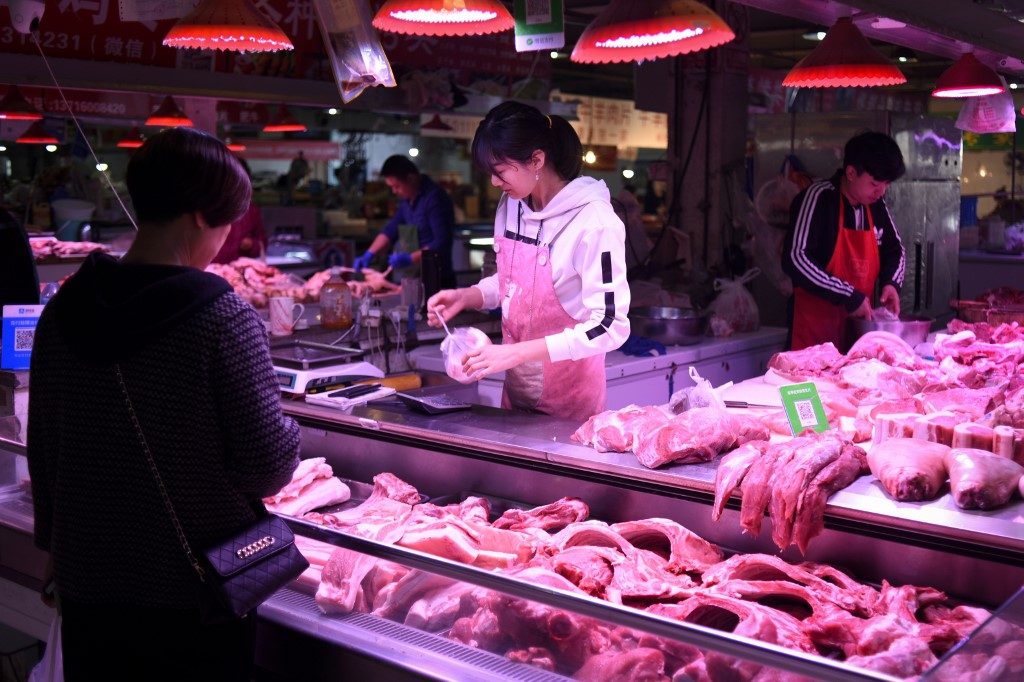SUMMARY
This is AI generated summarization, which may have errors. For context, always refer to the full article.

BEIJING, China – China’s consumer inflation accelerated at its fastest pace in almost 6 years in September as African swine fever sent pork prices soaring nearly 70%, official data showed Tuesday, October 15.
Authorities have gone as far as tapping the nation’s pork reserve to control prices of the staple meat, as the swine fever crisis could become a political and economic liability for the state.
The consumer price index (CPI) – a key gauge of retail inflation – hit 3% last month, the National Bureau of Statistics (NBS) said, up from 2.8% in August and the highest since November 2013.
Analysts in a Bloomberg news poll had forecast 2.9%.
The rise was caused by food price inflation, particularly disruptions to pork supply, Capital Economics said in a note.
The price of pork soared 69.3% on-year in September, the NBS said.
Beijing’s official statistics say around one million pigs have been killed since the first outbreak of swine fever in August, but that is widely considered to be an underestimate.
This in turn has also pushed up prices of other meats including beef, chicken, and duck, and eggs by up to 19% as consumers switched to other sources of protein.
“Looking ahead, consumer price inflation should continue to accelerate in the coming months as supply disruptions continue to push up pork prices and as the drag from lower oil prices eases,” said Martin Lynge Rasmussen from Capital Economics.
Producer prices, however, continued to slide for the 5th straight month, hit by weakening demand and mounting trade tensions with the US.
The producer price index (PPI) – an important barometer of the industrial sector that measures the cost of goods at the factory gate – contracted 1.2% in September from the previous year, the NBS said.
A slowdown in factory gate inflation reflects sluggish demand, while a turn to deflation could dent corporate profits and drag on the world’s No. 2 economy.
This in turn could lead to a drop in prices globally. – Rappler.com
Add a comment
How does this make you feel?
There are no comments yet. Add your comment to start the conversation.